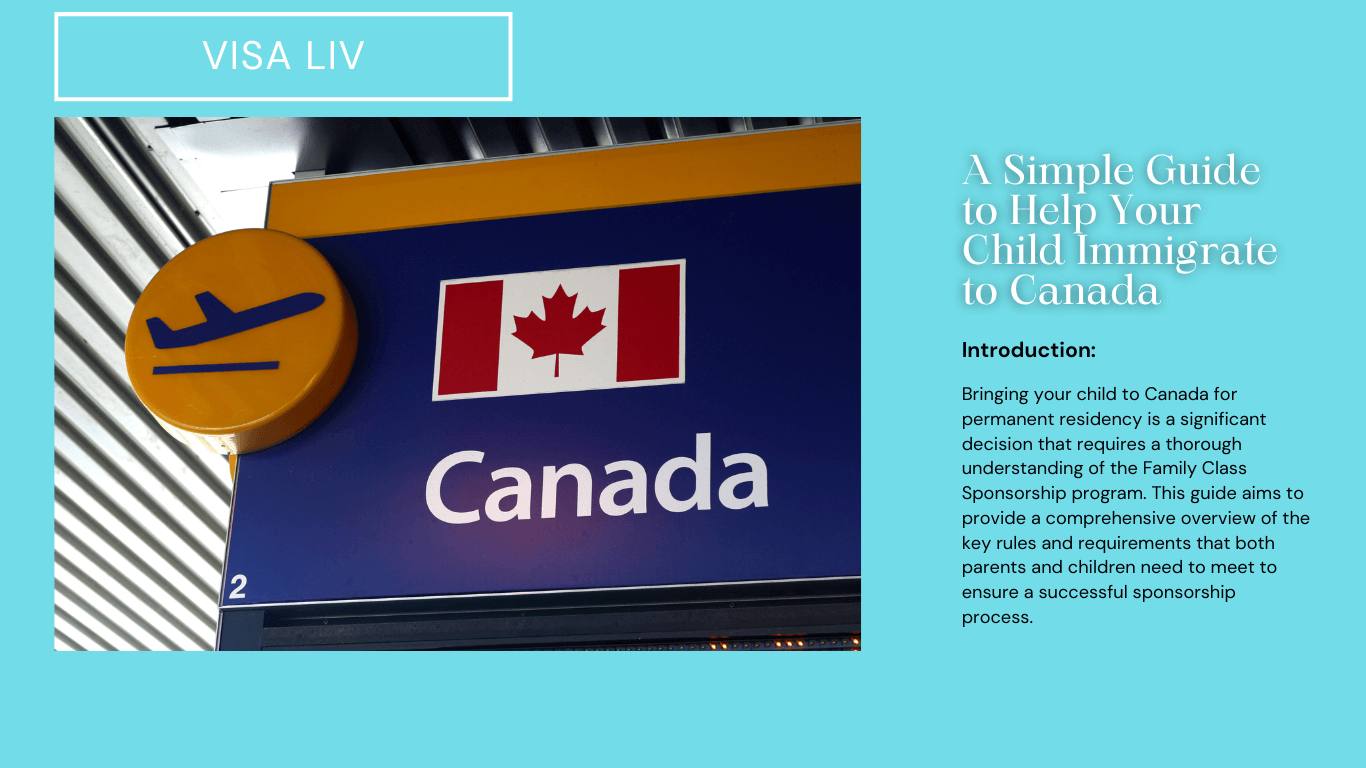Introduction:
Bringing your child to Canada for permanent residency is a significant decision that requires a thorough understanding of the Family Class Sponsorship program. This guide aims to provide a comprehensive overview of the key rules and requirements that both parents and children need to meet to ensure a successful sponsorship process.
Eligibility for Sponsors:
To initiate the process of sponsoring your child, you, as the sponsor, must meet certain criteria. These include being at least 18 years old and falling into one of the following categories:
- Canadian citizen
- Permanent resident living in Canada with intentions of remaining
- Person registered under the Indian Act of Canada
In addition, you must possess sufficient financial means to support your child without relying on government assistance, have a clean criminal record, and not owe any debts from previous sponsorships. It’s important to note that government assistance is typically not available unless the sponsor has a disability.
Eligibility for Sponsored Children:
For your child to be eligible for sponsorship and subsequent permanent residency in Canada, they must meet specific criteria as well. These criteria include:
- Biological or Adopted Child: The child must be your biological or adopted child. If you used assisted human reproduction methods, you might need to provide additional documentation to prove the parent-child relationship.
- Age Restrictions: The child must be younger than 22 years old. Exceptions apply if the child has a condition that prevents them from caring for themselves. During the sponsorship process, the child cannot get married or be in a common-law relationship until they attain permanent residency.
Proving Parent-Child Relationship:
Establishing the parent-child relationship is a critical aspect of the sponsorship process. Common methods of proof include birth certificates, baptismal certificates, and adoption papers. If assisted human reproduction was utilized, additional evidence might be required to validate the relationship.
Age Considerations for Permanent Residency:
A child’s age plays a crucial role in the permanent residency application process. If the child is under 22 and unmarried, they are considered dependent until they either get married or attain permanent residency.
Custody and Permission Issues:
Custody issues can complicate the sponsorship process, particularly in cases of divorce or separation. If one parent is moving to Canada with the child, permission from the other parent is usually required. In cases where custody is shared, written consent from both parents is necessary for the child to obtain permanent residency in Canada.
These custody rules align with court orders and laws in various countries. The well-being of the child is a paramount concern for Canada’s immigration office (IRCC), and decisions are made after careful consideration of the child’s best interests.
Conclusion:
Sponsoring your child to immigrate to Canada is a significant undertaking that demands adherence to specific rules and meticulous documentation. By understanding the eligibility criteria, proving the parent-child relationship, and navigating potential custody complexities, you can navigate the sponsorship process successfully. Ensuring that you meet all the requirements and provide accurate documentation will enhance your chances of reuniting with your child in Canada. Remember, knowledge of the rules and steps is key to a successful sponsorship journey, ensuring your child’s seamless transition to a new life in Canada.
Please visit our website www.visaliv.com for more details, where you will find answers to all of your visa and immigration-related questions.
Thanks,
VisaLiv Team

